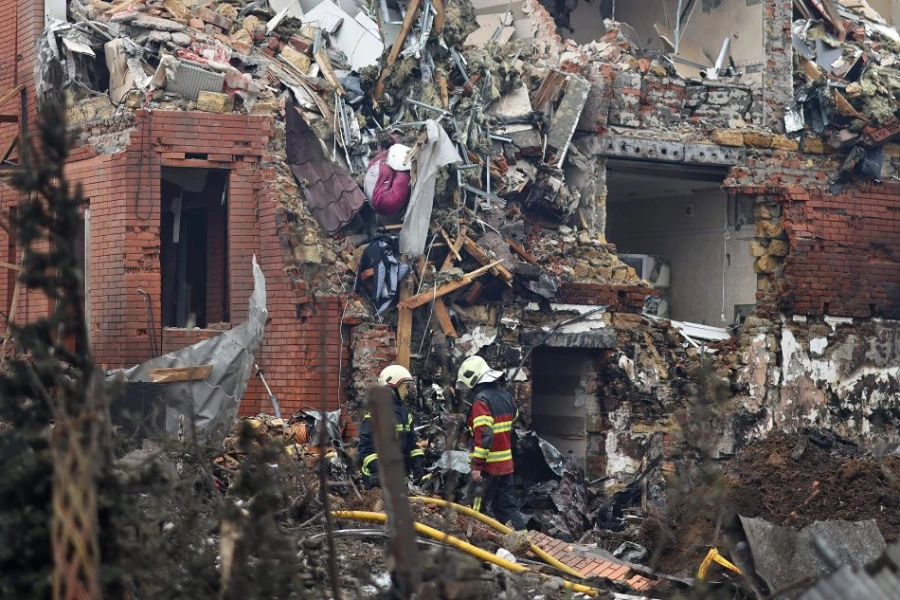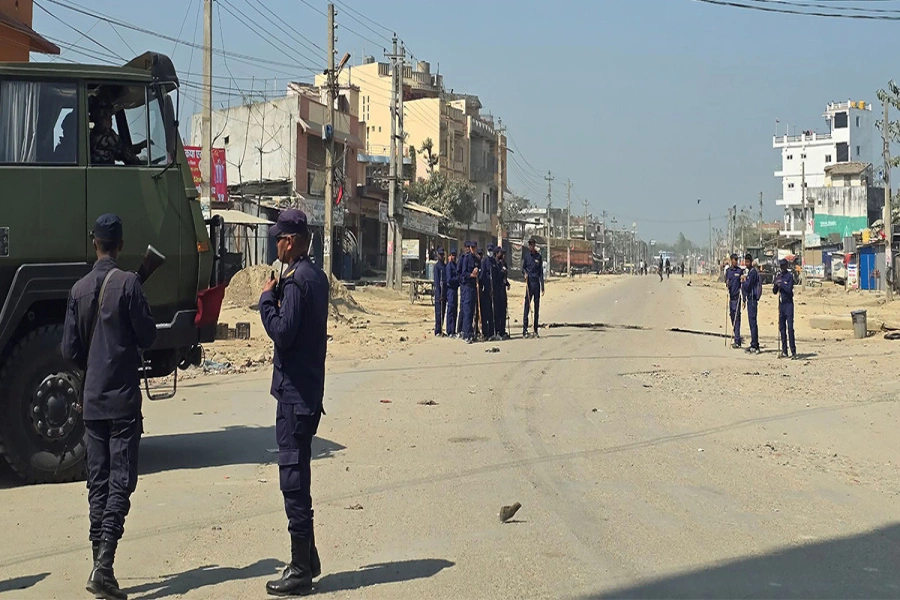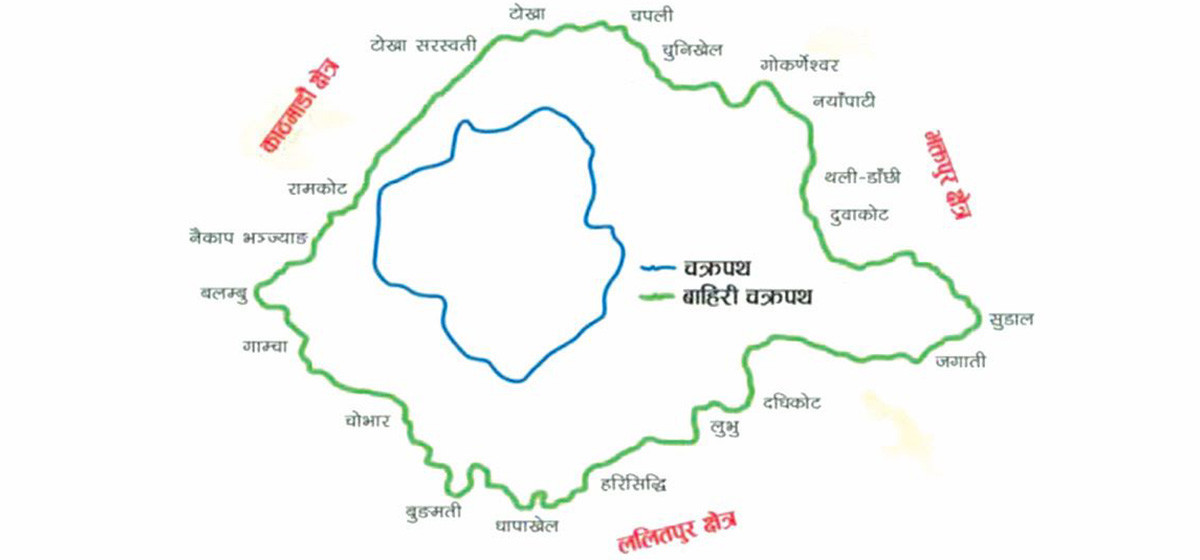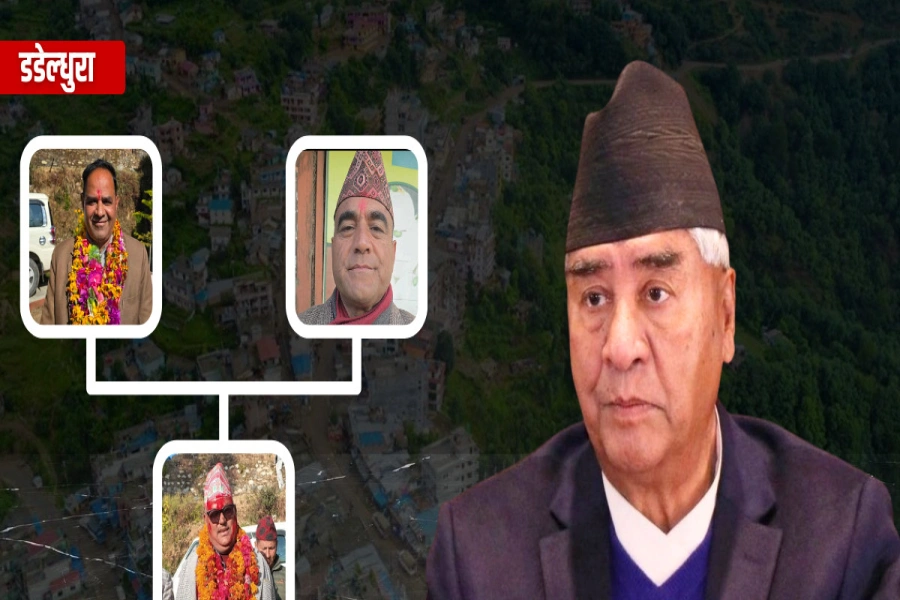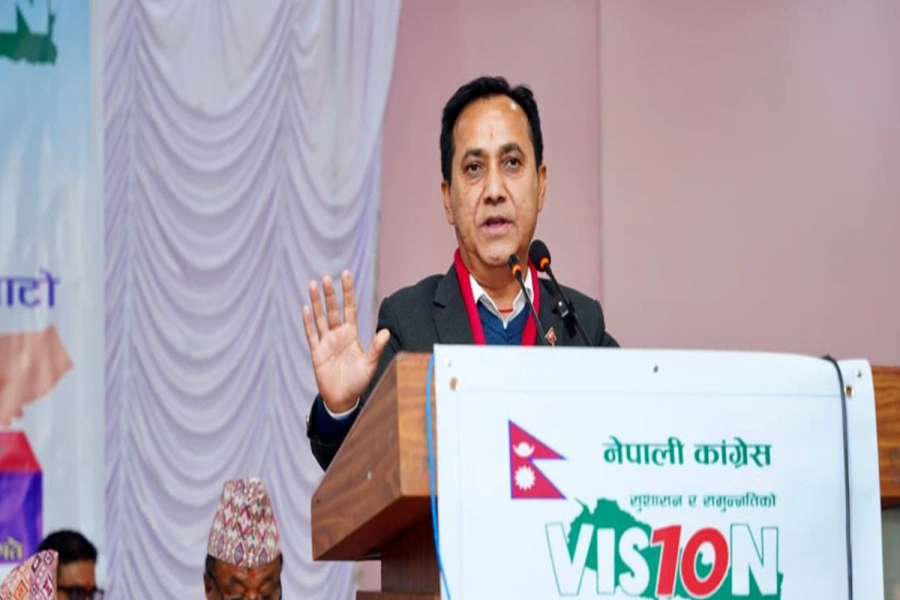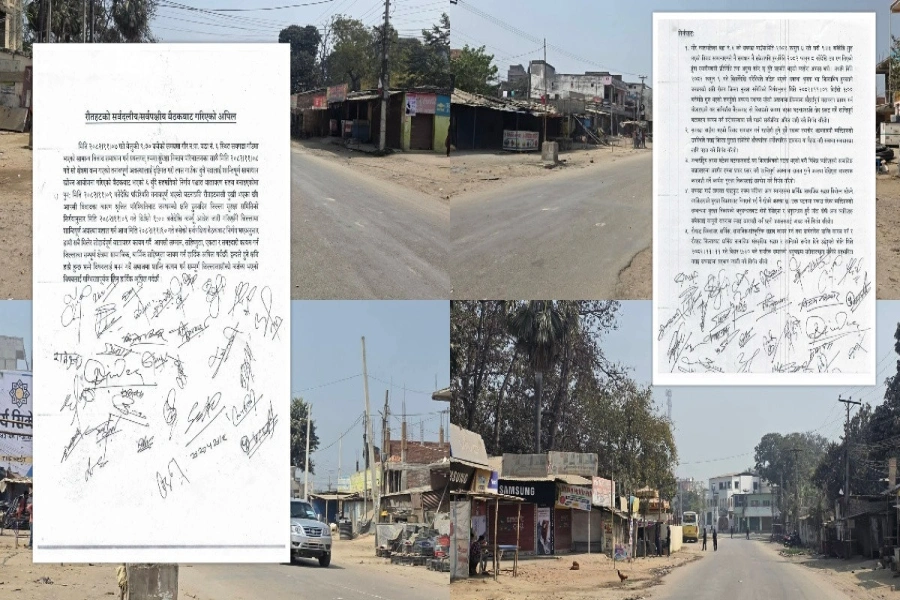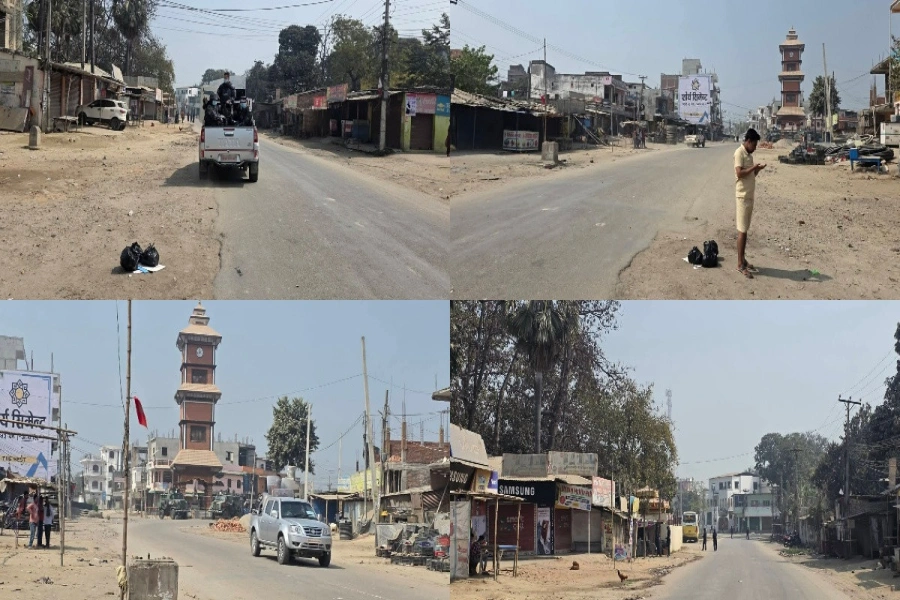The Earth isn’t burning—we are. The climate crisis unfolding around us are mere reflections of the deeper turmoil within ourselves. Nations like Nepal, standing on the frontline of climate change, having to face the disproportionate result of the crisis, bear witness to this truth. From the rapidly vanishing glaciers in the Himalayas to the erratic weather patterns disrupting lives across the country, the environmental crisis mirrors the unrest within humanity.
Despite decades of warnings from climate experts and international agreements with global superpowers involved, meaningful action remains elusive. Even in Nepal, the laws and policies pertaining to mitigation of climate change remain caged on paper. In some ways, the September disaster incidents across the country, triggered by incessant rain, has invited a soul-searching quest for the entire Nepali citizenry. No one can deny that the moment for change is now—rooted not only in policy but in a transformation of human consciousness.
The Stark Reality
The world is currently strangling on the throes of an environmental crisis marked by rapidly rising carbon dioxide (CO₂) levels which is accompanied by escalating global temperatures. The current atmospheric CO₂ concentration stands at 425 parts per million (ppm), a 52 percent increase from pre-industrial levels, which were around 280 ppm. This rise is not only attributed to CO₂ but also to other greenhouse gases, bringing the total CO₂-equivalent concentration to a catastrophic 560 ppm, signaling a looming disaster for Earth's ecosystems, weather systems, and human societies.
Global temperatures have already risen by approximately 1.3°C above pre-industrial levels, entailing severe consequences. The Antarctic ice caps have significantly diminished, contributing to rising sea levels. The Great Barrier Reef is on the brink of destruction, with coral reefs globally facing severe bleaching and die-off due to warming ocean temperatures. The Amazon Rainforest, often called the "lungs of the Earth," is asphyxiating, with deforestation and climate stress pushing it towards collapse.
If immediate action is not taken, this would spell the extinction of coral reefs and put over half of the world’s glaciers at imminent risk. The thawing of permafrost in the Arctic would release large amounts of methane, a potent greenhouse gas, further accelerating the warming process. Coastal cities would face multi-meter sea-level rise, threatening the global population and vital infrastructure.
Moreover, the destabilization of boreal forests and disruption of ecosystems could lead to an irreversible breakdown in biodiversity. Agriculture is also at risk, with global crop yields projected to drop by 3–7%, threatening food security for billions. The world is facing a climate crisis of unprecedented scale, demanding immediate and concerted action to prevent catastrophic outcomes.
Happy Earth Day!

Nepal: A Nation on the Frontlines
Nepal’s unique geography and reliance on natural resources catapults Nepali people to the frontline of climate change. The Intergovernmental Panel on Climate Change (IPCC) emphasizes that the alarming rate of glacial melting is one of the most pressing threats facing the country, endangering the vital water sources for millions of people. This trend increases the risk of Glacial Lake Outburst Floods (GLOFs), a recent example of which is the Thango glacial lake outburst flood which swept away Thame in August, damaging infrastructure and lives.
Landslides, floods, and erratic weather patterns, including unseasonal rains, are becoming common, devastating rural communities and disrupting agriculture in Nepal. The disaster incidents triggered by incessant rain in late September claimed at least 224 lives, 158 injuries, 28 missing persons due to severe flooding, including at least 37 in the capital. Around 13,300 people required rescue, while at least 1,200 houses were destroyed or damaged.
The agricultural sector, a key pillar of Nepal's economy, is particularly vulnerable. The late September disaster incidents caused an estimated $6 billion in agricultural and livestock losses. This exacerbated malnutrition and poverty, disproportionately affecting the most vulnerable populations, particularly in rural areas dependent on agriculture for survival.
Consumerism and Over Indulgence
The climate crisis stems from human greed and flawed philosophies: our consumerist attitude—'consume, enjoy, indulge'—and materialistic philosophy. The actions of the world's top 1% cunning businessmen are destroying the Earth.
Wealth inequality plays a significant role in driving climate change, with the world's 1% population contributing disproportionately to emissions. The excessive consumption and insatiable demand for resources by the wealthy, driven by capitalist, consumerist, and modernist ideologies, are major factors behind the climate crisis.
The accumulation of wealth in the hands of a few leads to increased emissions, particularly from methane-producing livestock and fossil fuels. As a result, the global population suffers due to the actions of a small, powerful elite who prioritize profit over the planet's health. This concentration of wealth and power exacerbates climate change and environmental degradation.
A Spiritual Crisis Masquerading as an Environmental One
This crisis isn’t merely environmental—it reflects humanity’s inner turmoil. As Acharya Prashant aptly observes, "Climate change stems from seeking happiness in the wrong places. Without a spiritual awakening, no activism can halt this destruction."
Disconnected from nature and true religiosity, humanity's inner chaos manifests outwardly in environmental degradation.
A Way Forward
Individual transformation is essential in addressing climate change, as it stems from seeking happiness in the wrong places. Vedanta teachings urge us to question our true nature by asking, "Who am I?" Through self-knowledge, we can discover what is truly beneficial for us and begin to understand our relationship with the environment. Vedanta offers a solution not only to global issues like climate change and pandemics but also to inner conflicts that manifest externally in our behaviors and attitudes toward the world.
Policy and collective action are also critical. Governments must implement strict environmental regulations to control population growth and enforce carbon emission limits. A shift toward renewable energy sources, moving away from fossil fuels, is crucial for reducing our environmental impact and mitigating climate change.
The media plays a vital role in raising awareness about the climate crisis. Accurate, fact-based information needs to be widely disseminated to inform the public of the alarming reality of climate change and inspire collective action.
A spiritual revival is equally important. We have lost the essence of true religiosity, which emphasizes balance, respect, and responsibility toward nature. The inner turmoil within humans is now manifesting as outer chaos in the environment. Reconnecting with ancient wisdom from texts like the Gita, Upanishads, and Vedanta can promote balance and harmony, guiding us toward a more sustainable way of living. Cultivating collective responsibility for future generations will help foster a sense of shared commitment to preserving the planet.
A Race Against Time
The outer crises we face—melting glaciers, rising temperatures, and declining biodiversity—are reflections of our inner disconnection. Humanity stands at a pivotal moment. With less than a decade to limit warming to 1.5°C, action is critical. Nepal, with its abundant glaciers and biodiversity, is both a symbol of the crisis and a call for global action.
2025 must mark the year of transformation—of minds, policies, and systems. True change begins with understanding ourselves, acting collectively, and reviving a spiritual connection to the Earth. The question remains: Are we ready to change?



